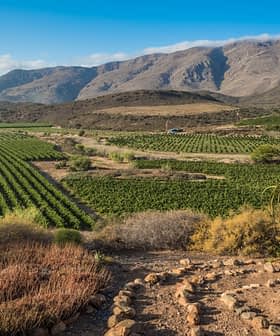Survey: 55 Percent of Consumers Prefer Sustainable Food Options
Consumers in developing countries showed the most rapid increase in sustainably made foods. Developed countries experienced more modest gains.
The latest consumer survey from Cargill, one of the world’s largest agricultural services and food production companies, demonstrates that shoppers are increasingly conscious of sustainability when making food purchases.
The latest FATitudes Survey was conducted on 6,000 shoppers in 11 countries. Fifty-five percent of the interviewed consumers said that they are more likely to buy a specific item if it comes with a sustainability claim, up from 51 percent in 2019.
Our latest findings clearly demonstrate that messages surrounding sustainability are having an impact on consumers.
Even in countries where consumers are less interested in sustainability, the numbers are growing.
In the United States, the survey reported that 37 percent of Americans factor sustainability into their food selection process, a six-percent increase compared with 2019.
See Also:Europe’s New Sustainable Agricultural Policies Will Make Foods Even More Expensive, Farmers WarnOther countries such as Brazil and Mexico have reported a 13-percent increase in the same period, with 74 percent of Brazilian consumers and 66 percent of Mexican consumers interested in the sustainability profile of the food they choose.
India also has seen this figure grow to 67 percent (an 11-percent increase). Meanwhile, the United Kingdom saw interest in food sustainability rise to 51 percent, an eight-percent increase.
Cargill, which is a major producer of palm oil, stressed how the survey asked consumers what kind of sustainability claim they would expect for the first time.
The top results went to claims such as “sustainably sourced” and “conservation of natural resources.” According to Cargill, those fared well ahead of known labels such as “Fair Trade” or “reduced packaging.”
“Our latest findings clearly demonstrate that messages surrounding sustainability are having an impact on consumers,” said Nese Tagma, managing director of strategy and innovation for Cargill’s global edible oils business. “Insights like these help guide our consumer-focused approach to innovation, enabling us to partner with customers to co-create new products and solutions that reflect current consumer trends and ingredient preferences.”
In a press release, Cargill stressed the relevance of “regenerative agriculture programs for row crop oilseeds to palm oil certified as responsibly sourced by the Roundtable on Sustainable Palm Oil.”
The palm oil market has been steadily expanding over time. According to data from the U.S. Department of Agriculture, 75,503 tons of palm oil were produced in 2021. Indonesia (59 percent) and Malaysia (25 percent) are by far the largest producers.
The significance of sustainability for the future of the palm oil market is enormous. Recently, the European Union has announced new rules for edible oil, which will require sustainability certifications for products to be imported within the 27-members block.
In other countries, such as Sri Lanka, the government has banned imports and asked farmers to uproot their palm tree plantations, as they have been seen as a cause of deforestation.
Referring to the survey results, Florian Schattenmann, chief technology officer and vice president of innovation and research and development for Cargill, noted how “these insights further affirm our commitment to embed sustainable practices into every aspect of our operations.”
“This includes everything from our sourcing practices to processing facilities, and even extends to new product development, where decisions to commercialize innovations now consider sustainability alongside performance and cost,” he concluded.








